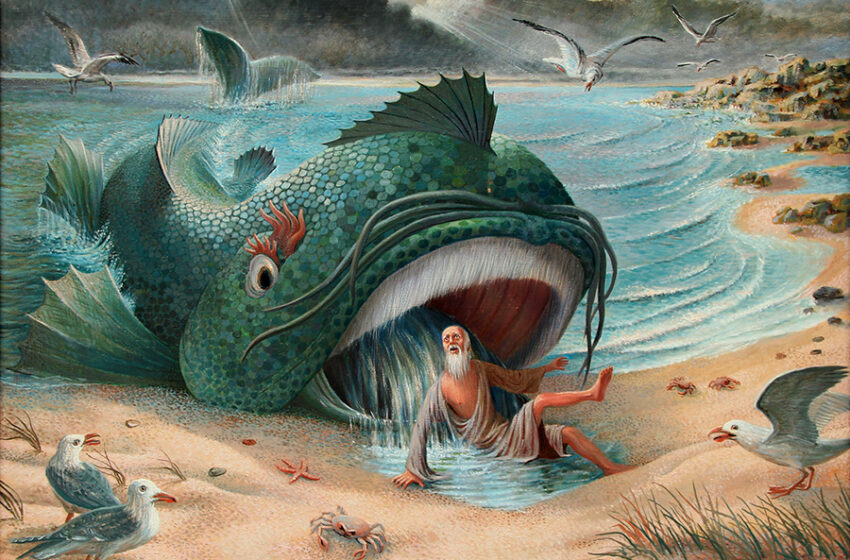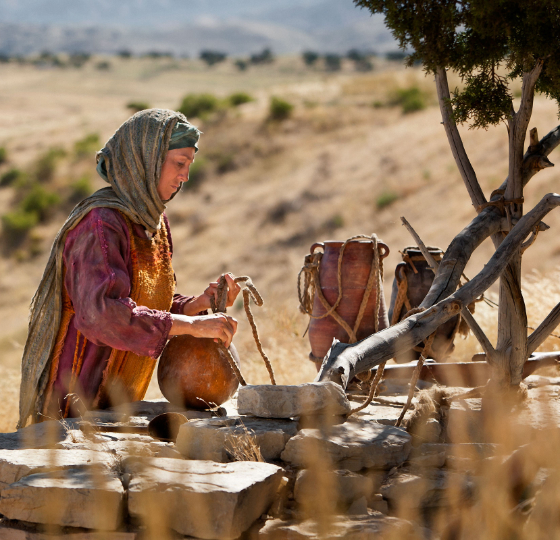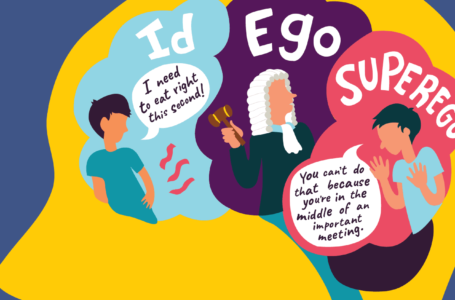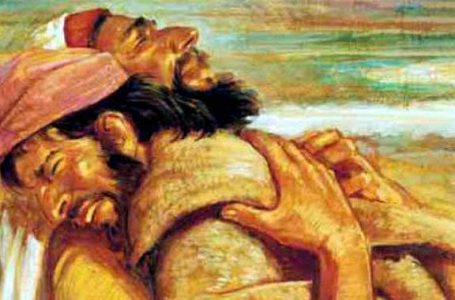What is the Bible? – Catholic Answers by Sr Marie

Jonah and the whale – oil by Herbert Mandel
What Is The Bible? – Catholic Answers By Sr Marie Scicluna RSCJ
1. What is the Bible all about? What is the purpose of the Bible? And what is its message?
Sr Marie: “To the question – what is the Bible?, I would say that the Bible is certainly ‘the Word of God’. Yet, since it was written by human beings, it is also the product of a certain culture and reflects particular moments in human history.
The purpose of the Bible is to reveal to God’s immense love for us human beings. So it helps us draw closer to God in our response to that love.
The main message of the Bible is precisely to lead human beings to an awareness of God’s presence in their lives, an awareness of God’s tender care and that he created human beings in order to make them sharers of his creative love. The Bible is called ‘the history of salvation’ because in, and through it, we perceive God offering us salvation and redeeming us continually, to lead us to himself. Thus, the main message of the Bible is this bond that God desires to have with human beings: “You shall be my people and I shall be your God.”
The word ‘Bible’ comes from the Greek word meaning ‘the book’. A bible scholar has called it “The Word of God in words of men”: God’s loving revelation of himself to human beings written in human form and language. The Jews used the title ‘the Book’ to denote their sacred writings. We find these writings in the Old Testament of the Christian Bible. To these writings, the Christian Church has added some early Christian writings which are considered to be ‘inspired’. These include the Gospels, the Acts of the Apostles, Pauline letters and other letters, and the book of Revelation.”
2. Who wrote the Bible and why?
Sr Marie: “The Bible is not one book, written by one person. There are seventy three books. Forty six books are in the Old Testament, and twenty seven in the New Testament. These books were written by different authors. They were mainly written in Hebrew, Aramaic or Greek languages. Hence, they are the product of the community of faith. Therefore, the Bible can be considered to be a whole library of books.
What all these books have in common is that they are born out of a faith in the living God. Otherwise they vary in content and message, depending on the background of the author, and the time in which a particular book was written. What makes a unity of this ‘library’ is the conviction of all the authors that Yahweh is the true and living God. Inspired by his Spirit, these authors narrate how God has created the universe and all it contains. Above all, they write about God’s love for human beings, which is everlasting and unchangeable.”
3. When was the Bible written?
Sr Marie: “The Bible grew out of the life of the Judeo-Christian community. It is not purely a literary device. The Bible was not preserved because it was ‘literature’ but because it reflects the intimate relationship of man with God. It took many years to be formed. The Old Testament spans 1000 years of Israelite history, while the New Testament covers the first 100 years or so of Christianity.
The composition of the Bible is both complex and varied. Some writings come from one source and clearly reflect the author’s personality. Others are the work of successive generations. In these books, different generations added different insights. Thus, what we have in the Bible is a ‘shared memory’ of a living tradition.
4. Is the Bible true? Is the Bible historical?
Sr Marie: “Some of the events described in the Bible, such as the Exodus from Egypt, the conquest of Palestine, the life of Jesus Christ, and the spread of the Gospel, are truly historical However, the term ‘historical’ as understood in the modern sense, is inadequate to describe what is written in the Bible. The ‘historians’ to whom we owe these writings were not just recording events. Their main concern was to tell the story of a community of faith, rather than to narrate the political or social events of the day. The writers gave the theological interpretation of the historical events. They did not necessarily accurately record the dates or other information of these events.
Thus, it is vital for someone who is studying the scriptures to recognise the form and intention of the author since this can be key to interpret the text. For example, the account of creation in the book of Genesis is not intended to be a literal account of how the universe came to be. It is a theological reflection on the fact that God is the Creator. Likewise, the story of the prophet Jonah, who was swallowed up by the whale and later thrown out on the shore, is not to be read as an historical narrative. It is a legend with an important truth to transmit. The run-away prophet is led by his experience in the pagan land of Nineveh to realise that faith in Yahweh, and salvation, is offered to all peoples. Through this narrative, we learn that these God-given gifts were not offered exclusively to Jews.
5. Why is the Bible called ‘the Word of God’? Why is it said to be ‘inspired’?
The Bible is called ‘the Word of God’. It is also said to be ‘inspired’ because the Bible communicates God’s revelation of himself through the medium of the history of Israel and of early Christianity. Furthermore, it continues to do this in every epoch of human history. Yet we are dealing with the written word – Scripture.
We know that the writing of the Bible took place over a period of time. These biblical writings emerged from the awareness of the faith-community that God was present in their midst. Thus, in this process of writing, human history becomes the gradual unfolding of the face of God on the one hand, and of the face of man on the other. It is always a two-fold revelation. Scripture reveals to us the tender, loving heart of God. It reveals a God who is always ready to forgive and ‘re-create’ what human beings mess up. At the same time, we find narratives about the tortuous nature of man, ever bent on doing evil.”
6. What is the key to applying the Bible to my life? Why is the Bible important?
Sr Marie: “First of all, the Bible needs to be prayed over. The message which the Bible conveys needs to be assimilated before it can be applied to our own lives. We also have to read the Bible in the light of faith. If we read the Bible in this way, we realise that it is not simply an account of how the Jewish people came to believe in the one God. It is not just about their struggles to maintain that faith. We realise that it is also an account of my own relationship with God. ‘Salvation history’ is my history.
In the history of Israel, in the response that individuals make to the love of God revealed in Scripture, I recognise my own story. I recognise my weak response. I also recognise the constant calls that God makes in my life or situation.
The Bible is important because through it God speaks to us in a special way. It is his Word, and through it God reveals himself to us through the experiences, struggles, faith and doubt of the Jewish people. Hence, in the Bible we see a mirror of our own story. The Bible is a paradigm for humanity. In the events recorded in the Bible we can see our own history as peoples, as nations, and even as individuals.
St. Paul tells us: “Scripture was written for our instruction” (1 Corinthians 10:11). In and through the Bible we see salvation history as it happens in our own lives. In this sense the Bible epitomises the human experience of God. It reveals our struggle to believe, and narrates our struggle against evil. Above all the Bible reveals God’s faithful love and mercy.”
7. Is the Bible a moral book?
Sr Marie: “The Bible is not a book of moral theology as understood in the modern sense. The unique message of God’s love for humanity, and humanity’s response to, or rejection of that love, is expressed in a variety of ways. A variety of literary forms are used. We find poetry, for example Psalms and Song of Songs, historical novels such as those about Ruth and Esther, popular tales like the story of Job, and national events.
While reading the Bible one also needs to take in consideration the writers’ way of thinking. Semitic ‘logic’ is very different from Greek or modern logic. Modern mentality tends to be more philosophical and abstract whereas the Semite thinks differently. A good example to demonstrate this would be the Gospel parables. In answer to ‘Who is my neighbour?’ Jesus tells the story of the Good Samaritan with the invitation at the end: “You go and do likewise’.
We need to adopt the Semitic way of thinking in order to understand that the Bible is offering us this guidance as a way of life. We are called, in the words of the prophet Micah, to ‘walk humbly with our God’. That has moral implications and exigencies for justice, human relationships…”
8. Is the Bible sexist?
Sr Marie: “The Bible was written within a Semitic culture. Therefore, we cannot interpret it by our own criteria of gender equality. One must not forget that it was written by a people who lived in a different epoch. These people expressed themselves in a distinct way and had a particular mentality and culture.
Most of the Bible was written in a patriarchal culture where women were considered inferior to men. A woman was blamed for the sin of our first parents. Sirach (42: 14) goes so far as to say “Better the wickedness of man than the goodness of a woman”. Texts such as this reveal the extent to which cultural prejudice influenced the concept of the woman over the centuries.
God is spirit and has no gender. However, God is always referred to in masculine terms both in speech and in the liturgy. Hence masculine images of such as Father and King, dominate. This is in contrast to the surrounding, concurrent, polytheistic cultures which featured mainly female images of the deity such as Astarte and Isis. These religious cults were often linked to sexual orgies, temple prostitution and other sexually related practices. Through its images of God, the Israelite’s religion tried to show that it was distinct from other religions.

Although the image of God as King and Father dominate, in the Bible we also find feminine images of God. Thus, both male and female images are equally good ways of addressing God. God is both Father and Mother. These images express our way as humans of naming the mystery that is God.
Whatever gender image we use for God expresses our own experience of God. So this varies from person to person.
Jesus treats women and man with equal love and respect
It is centuries after the first books of the Bible were written that we see Jesus treating men and women equally. Jesus’ attitude towards women is in marked contrast to the way women were undervalued in his day. In the Gospel tradition men and women are treated alike. In the Gospels, both men and women are equally loved by God and equally responsible for their fidelity to God. As St Paul remarks, “In Christ there is neither Jew nor Greek, there is neither slave nor free, there is neither male nor female, for all are one in Christ Jesus.” (Galatians 3: 28)
9. Which 3 Bible verses are good to memorise?
“I have loved you with an everlasting love” (Jeremiah 31: 3)
“He (Christ) loved me and gave himself for me” (Galatians 2: 20)
“Come Lord Jesus” (Revelation 22: 20)
Read more:
– Top Popes’ Quotes About The Truth Of The Bible
– The Gospels: A Commentary














